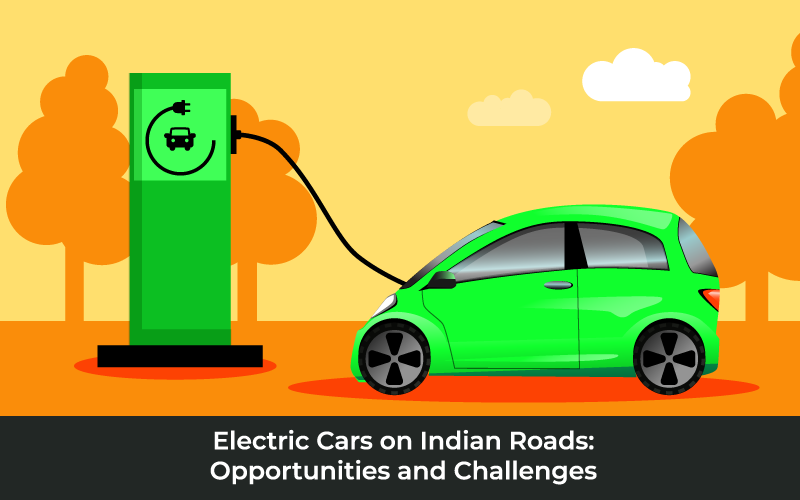Electric cars have been garnering a lot of global attention. Not so long ago, the Indian Government announced plans to make the country’s entire transportation system run on electricity by the year 2030. This move have been lauded by policymakers and car companies alike. The National Electric Mobility Mission Plan was launched in 2013 with the target of putting 6-7 million electric cars on the road by 2020. So far, three billion dollars’ worth of investment has gone into making this vision a reality. However, we should not ignore the fact that besides the opportunities gained from setting this plan in motion, challenges also exist.
Opportunities
A lot of automobile firms have keyed into this great opportunity offered by the Indian Government. In November 2017, Mahindra and Mahindra Limited partnered with Uber Technologies Limited to supply electric vehicles to Delhi and Hyderabad. Mahindra and Mahindra Limited did not stop there. The Indian automobile giant and its rival Tata Motors Ltd. conducted a tender to supply 10,000 government workers with electric cars. Another company that has made use of this opportunity to its advantage is the Lithium Urban Limited. They are into the business of transporting corporate employees in electric cars. These are steps that we believe will add value to the nation’s economy.
Power Generation companies are not left out. The National Thermal Power Corporation recently established two EV charging stations with branches in Noida and Delhi. The company plans to construct twenty of such charging stations around the country. Also, foreign investors including China’s Zhejiang Geely Holding Group Co. and Finland’s Fortum have indicated their interest in helping the country build infrastructures that will power electric vehicles. India will enjoy a lot of economy gains if it uses the export market to its advantage.
For a very long time, the Indian economy has been hugely reliant on oil and gas exports. The shift towards renewable energy is enabling for diversification of economy. This will have a positive effect on the nation’s GDP and economic growth. The diversification in the nation’s economy also implies that each geopolitical entities of the nation can be economically independent of the others,
Experts say that electric vehicles and cars can serve as good storage system. If that is the case, electric vehicle adoption is a positive approach towards resolving the environment issues that has plagued our natural ecosystem as the use of fossil fuels will experience a significant decline.
Challenges
There are also challenges that comes with the introduction of electric cars. To begin with, India has to demonstrate their readiness to shift towards Electric Cars by significantly investing in acquiring lithium – which is an important raw material used in the production of the lithium-ion batteries that power electric cars. The absence of a domestic car company that deals in the production of these batteries implies that India has to depend heavily on external skill and knowledge.
Secondly, existing policies and regulations may need to be modified or changed to take the large-scale requirement of electricity into consideration. Electric Vehicles is not an affordable merchandise. The masses will surely experience difficulty purchasing one. Subsidies or lack of them will play a big role in affordability. Also, problems such as lack of charging stations and other related infrastructure could potentially increase the cost hence making it unaffordable for most buyers.
Electric cars are important for the future. However, policies, regulations, infrastructure and investments relating to Electric Vehicles are still unclear. However, India is starting to demonstrate that it is a nimble player with smaller Indian companies seeing success in electric two and three which could be transitioned to cars. India can do what it did with mobile phones, become a big consumer and then a net exporter

